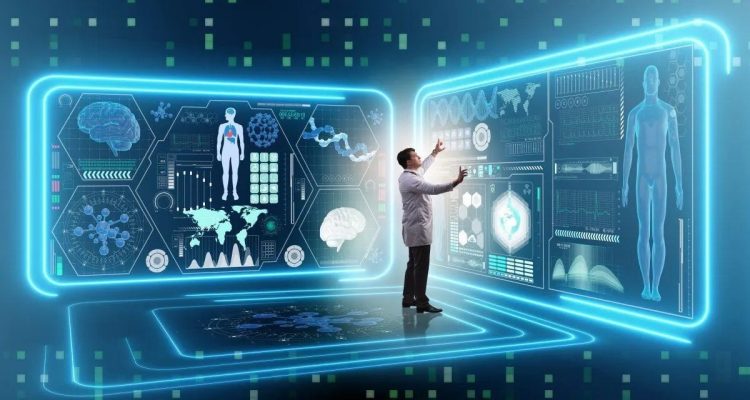The Rise of AI in Mental Health Support
Mental health care is undergoing a transformation, fueled by the convergence of artificial intelligence, mobile apps, and an urgent need for scalable psychological support. The rise of AI-driven mental health tools like Woebot, Wysa, and Replika coincides with global mental health crises—heightened by pandemic isolation, economic stressors, and mounting anxiety across all age groups. These digital companions offer chat-based cognitive behavioral therapy (CBT), mood tracking, and guided mindfulness exercises with 24/7 availability. Unlike traditional therapy, AI chatbots are non-judgmental, infinitely patient, and accessible without insurance or long wait times. Users report a sense of relief after even short conversations with these platforms, and early studies have indicated improvements in emotional awareness and mood regulation. However, their proliferation raises the question: can these tools become trusted frontline support, or will they always play a supplementary role to human professionals?
Woebot, Wysa, and the Digital Counselor Ecosystem
Woebot is perhaps the most recognized AI therapist app, developed by Stanford psychologists and backed by clinical trials. It combines humor, empathy scripting, and CBT protocols in a conversational interface. Wysa uses a penguin avatar and is guided by evidence-based techniques such as dialectical behavioral therapy (DBT), acceptance commitment therapy (ACT), and motivational interviewing. Both apps use Natural Language Processing (NLP) to detect emotional cues and provide tailored coping strategies. They’re designed not to diagnose but to support users between professional sessions or in areas with therapist shortages. Beyond them, newer entrants like Youper, Mindstrong, and Koko are exploring AI-powered journaling, biometric-driven interventions, and social media-based support ecosystems. These tools often claim to augment—not replace—therapists. Yet their growing sophistication and acceptance among Gen Z and Millennials suggest a cultural shift in how mental wellness is managed.
Can AI Replicate the Human Touch?
Despite the benefits of scalability and cost-effectiveness, AI therapy still faces limitations rooted in the absence of genuine empathy and contextual nuance. Human therapists rely not only on verbal cues but also on facial expressions, tone, posture, and backstory. AI apps, despite advancements in sentiment analysis, still fall short when processing complex emotions like grief, trauma, or existential dread. There’s also a risk of reinforcing loneliness if users over-rely on digital conversation without fostering real-world connections. Clinical psychologists caution against overpromising, emphasizing that while AI can offer emotional “first aid,” it cannot replace the deep rapport, accountability, and therapeutic alliance formed in human-to-human settings. Critics also note that if AI is too effective at mimicking empathy, it may cause confusion about consent, autonomy, and dependency—especially for vulnerable users.

Privacy, Data Security, and Ethical Red Flags
One of the most contentious issues around AI mental health apps is privacy. Many apps, even those targeting teens, are not governed by HIPAA or GDPR. They often collect user data—mood logs, behavioral patterns, even suicidal ideation—and may use it for algorithm training or commercial purposes. While some apps promise anonymization, data leaks and opaque terms of service have raised alarms among ethicists. There are also ethical concerns regarding bots making clinical suggestions without a licensed supervisor, and a lack of red-flag mechanisms for escalating crisis situations. Some apps now integrate emergency resources or flag high-risk phrases to human moderators, but the absence of real-time human intervention remains a serious limitation. Regulatory frameworks are struggling to keep pace with this fast-growing tech sector, leaving users to rely on company goodwill and limited transparency.
Blended Therapy: The Hybrid Future
A growing consensus among mental health experts is that the future lies in blended therapy models—where AI supports rather than supplants therapists. For example, an AI app might help patients track mood, rehearse coping strategies, or complete CBT homework between sessions. This data can then be shared (with consent) with human therapists to enrich in-person or telehealth conversations. Clinics are beginning to embed AI tools into their workflows to improve diagnostics, reduce administrative loads, and enhance patient engagement. Insurance providers, too, are exploring coverage for digital therapy subscriptions, particularly for early intervention or rural populations. With strategic oversight, AI can enhance access, reduce stigma, and build therapeutic momentum—particularly for introverted or underserved users. The key lies in designing systems that are transparent, ethically governed, and interoperable with professional care networks.
How to Choose an AI Therapy App
Not all digital mental health platforms are created equal. When selecting an AI-powered app, users should review its privacy policy, clinical backing, and user interface. Is the app rooted in established therapeutic frameworks like CBT or DBT? Does it offer disclaimers about its limitations and guidance for escalating to human care when needed? Is the chatbot responsive and adaptive, or does it fall back on generic scripts? Users should also look for features like mood journaling, mindfulness exercises, and peer-reviewed support content. Importantly, apps that offer a hybrid model—with optional access to licensed therapists—tend to provide a more balanced approach. Free apps may seem convenient, but often come with trade-offs in data usage and ad-based revenue models. Paid apps may offer better encryption, therapist oversight, and customization.
Mental Health Equity and Global Access
AI therapy apps hold particular promise for addressing mental health inequity across the globe. In low- and middle-income countries, where psychiatrists are scarce and stigma remains high, mobile-based therapy can democratize care. These tools bypass cultural taboos and language barriers with localized content and customizable avatars. In refugee camps, prisons, or disaster zones, digital platforms can offer scalable emotional support where traditional services cannot operate. However, digital inclusion is not guaranteed—many regions lack the internet access or device penetration required for effective deployment. Thus, NGOs and tech developers must collaborate on infrastructure and training to ensure marginalized populations can benefit. Moreover, AI must be culturally sensitive, avoiding Western-centric therapy models that may not resonate globally.
Investment and Innovation in the AI Mental Health Space
The mental health tech industry is booming. Venture capital is pouring into startups promising next-gen emotional intelligence and conversational design. In 2023 alone, over $2 billion was invested in digital mental health platforms, with a significant portion earmarked for AI development. Big Tech players like Google and Apple are exploring integrations with wearable tech, voice analysis, and AI-generated emotional feedback loops. Startups like Ellipsis Health and CompanionMX are mining vocal biomarkers for early detection of depression and anxiety. Meanwhile, nonprofit and university labs are researching open-source AI therapy models to reduce commercial bias. Investors are bullish on the sector—but must balance enthusiasm with the gravity of mental health ethics. A poorly trained bot could do more harm than good. Therefore, clinical validation, interdisciplinary oversight, and iterative feedback are critical for sustainable growth.
Conclusion: Complement, Not Replace
AI therapists are not a panacea. They cannot replace human intuition, moral reasoning, or the therapeutic alliance forged in trust and vulnerability. But they are not to be dismissed either. When thoughtfully designed and ethically implemented, AI mental health apps can be powerful tools for triage, maintenance, and engagement. They lower the barrier to care, especially for those who are isolated, anxious, or seeking anonymity. They can support therapists, not supplant them—offering continuity between sessions and insights for more personalized treatment. The future of mental health is not AI versus humans; it’s AI with humans. This hybrid model, rooted in science, transparency, and compassion, may be the most resilient path forward in healing minds across the world.







































